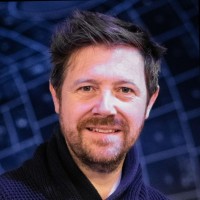 \
&
Contact us
\
&
Contact us
 \
&
Contact us
\
&
Contact us
Published on | 4 years ago
Last updated on | 3 months ago

nico.deblauwe@vlaio.be
Horizon Europe is about impact, even more than earlier framework programmes. Making a difference is, after all, the goal of Horizon Europe. And this should reflect in your mindset when writing a proposal, as impact is more than just ticking some boxes.
Impact is about increasing the visibility of your research/business, it enhances your reputation and helps gaining understanding and support. It potentially opens up other (follow-up) funding sources. And by doing so, it impact supports the spreading and further use of knowledge. And yes, it inceases your proposal’s chances of success...
The pathway is the combination of logical steps towards the achievement of the expected impacts of the project over time, in particular beyond the duration of a project.
An impact pathway begins with the projects’ results, to their dissemination, exploitation and communication, contributing to the expected outcomes in the work programme topic, and ultimately to the wider scientific, economic and societal impacts of the work programme destination.”
Communication is about the project in general, how it adds value to the European dimension of solving the problem at hand, and how it relates to the (societal or economic) challenges or key impacts. Communication targets a wide audience (including the general public, generalist media, ...). As the message is mostly about the (high level) goals of the project, the language used should be free of jargon and understandable for a non-specialist reader.
Dissemination aims at maximising the impact of research results in the public domain. Therefore, the target audience of dissemination activities is any potential user of the project results: the scientific community, stakeholders, industry, policy makers, investors, civil society, etc.
The objective of exploitation activities is the better use of project results for valorisation and knowledge transfer. It is mostly targetted at project partners and organisations with similar profiles, and the ecosystem around them.
The European Commission offers various free-of-charge services to support your dissemination and exploitation activities:
Open research Europe platform: an open access, publishing platform for scientific papers for Horizon 2020 and Horizon Europe beneficiaries, including an open peer review and article revision.
Horizon dashboard: an interactive knowledge platform where you can extract statistics and data on EU research programmes.
Horizon results platform: A platform for showcasing your research results, finding collaboration opportunities and getting inspired by the results of others. The Horizon Results Platform TV provides additional support, including testimonials and interviews from project participants that have succeeded as entrepreneurs
Horizon results booster: Free consulting services including a portfolio dissemination and exploitation strategy, business plan development and go-to-market support.
European standardisation booster: supports Horizon Europe and Horizon 2020 projects to contribute to standardisation in Europe and beyond.
See also the attached document for the differrent Booster projects you can encounter
Innovation radar: An initiative that identifies high-potential innovations, based on a data-driven methodology, and assists EU-funded researchers and innovators in reaching the market with their innovation.
We offer news and event updates, covering all domains and topics of Horizon Europe, Digital Europe & EDF (and occasionally, for ongoing projects, Horizon 2020).
Stay informed about what matters to you.
By signing up, you can opt in for e-mail notifications and get access to
a personalised dashboard that groups all news updates and event announcements in your domain(s).
Only for stakeholders located in Flanders
The Stargate project obtained funding under the special Green Deal call of Horizon 2020, more in particular under the topic of “green ports and airports”. It received the maximum score of the evaluators and was selected out of more than 40 projects. Stargate’s purpose is to prove that sustainable aviation is possible and happening. It focuses on the further decarbonization of the aviation industry, the improvement of local environmental quality and the stimulation of the modal split. Together with a consortium of 21 European partners with a diverse and rich expertise (airports, community partners, knowledge institutions, consultants, local governments, …), Brussels Airports takes the lead as lighthouse airport to develop and implement innovative solutions. Results that prove successful can be deployed at the fellow airports (Toulouse, Budapest, Athens). Over the course of the coming five years, the consortium will exchange knowledge to investigate and realize more than 30 concrete projects.